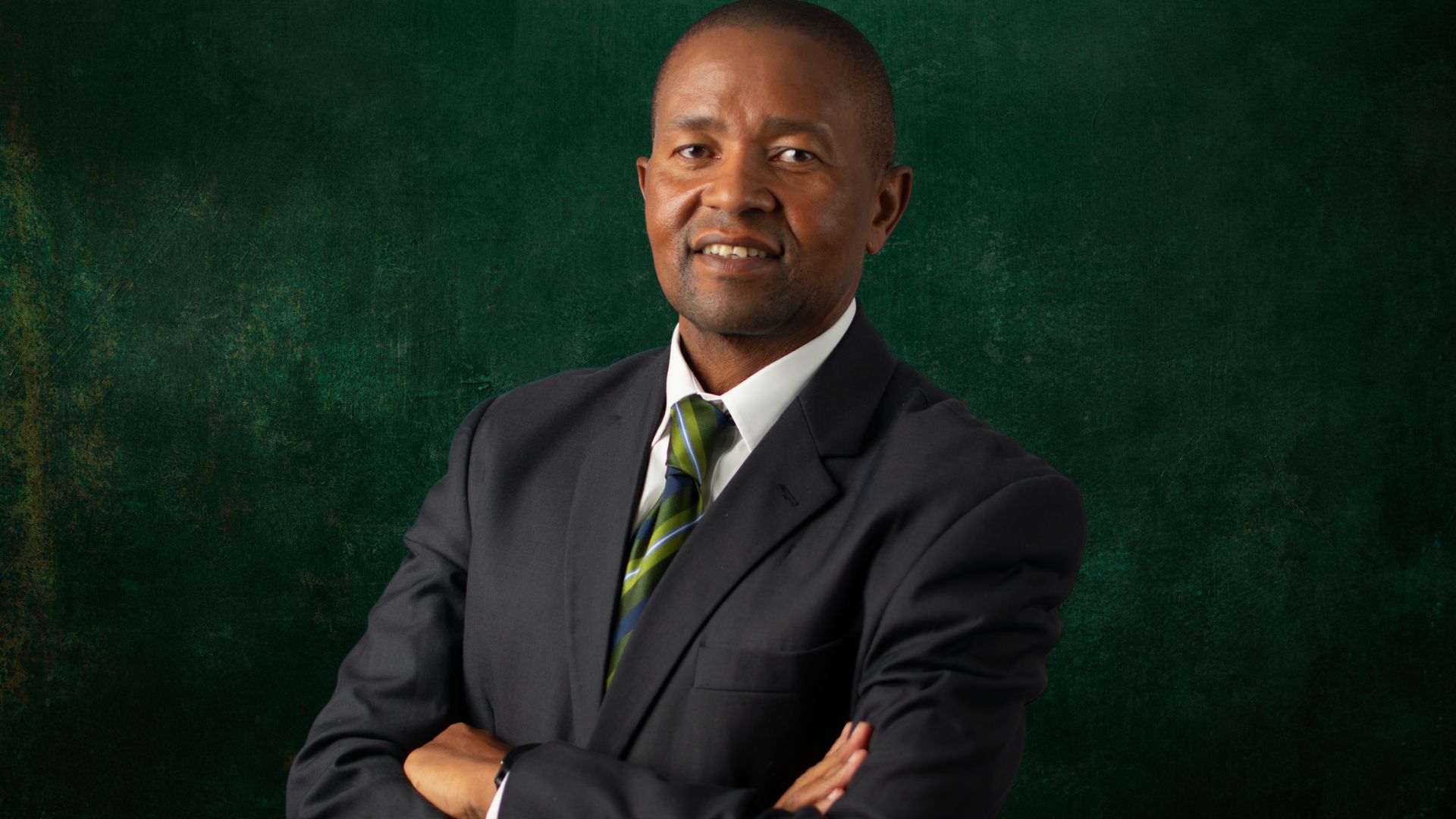In these uncertain times, Geoffrey Qhena, the chairman of EXXARO, one of South Africa’s largest black- empowered and diversified mining companies, speaks about how Africa’s biggest economy must focus on strengthening its markets and redoubling efforts to expand trade ties.
Talking business with one of South Africa’s most formidable corporate titans, the conversation pivots to how challenges can be turned to opportunities for the country’s good.
Exxaro Chairman Geoffrey Qhena says South Africa–the country in Africa singled out by United States (U.S.) President Donald Trump for sanctions and tariffs–must use the unwanted spotlight to expand its trade partnerships beyond traditional friends.
While President Trump’s tariffs made for an unpredictable business environment, Qhena argues it also gives Africa’s biggest economy a chance to diversify its markets, with a particular focus on Africa, home to some of the fastest-growing economies in the world.
“It’s a bit tricky because the environment has changed so much. But it also creates opportunities,’’ Qhena says, in an interview with CNBC Africa. “So, for me, it’s to say, let’s use this to reflect on which other markets we can look at. Let’s diversify if we haven’t and if we have, how do we strengthen those? It’s an opportunity for us.’’
Loading...
In one of his first acts back in office, President Trump falsely claimed the country’s Afrikaans-speaking farmers were being persecuted by the South African government. The crisis escalated in mid-March when his government expelled the South African Ambassador to the U.S. in Washington, Ebrahim Rasool for criticizing his administration.
The tension with one of the country’s biggest trading partners and sources of investment should spur the government to redouble efforts to expand trade ties with Africa using the African Continental Free Trade Area (AfCFTA) agreement, according to Qhena, who also chairs Johannesburg Stock Exchange-listed telecommunications operator Telkom and sits on several boards including Investec SA, one of the country’s biggest banks.
‘’It’s a no-brainer,’’ Qhena says, when asked about the opportunity presented by the four-year-old AfCFTA. ‘’Have we taken enough advantage of it? Truth be told, we haven’t. I know it’s not easy. It’s complex. (But)…there are some low-hanging fruits and I know we can do more before we look outside the rest of the continent.’’
The African Union formally launched the AfCFTA in January 2021, the youngest and largest trading bloc in the world seeking to create a common market with a combined gross domestic product of $3.4 trillion that’s projected to grow to $16.5 trillion by 2035, according to the World Bank.
South Africa has also upped its partnership with the European Union, with President Cyril Ramaphosa hosting the European Commission President Ursula von der Leyen and European Council President António Costa at the 8th South Africa-European Union Summit in March at which some €4.7 billion ($5.1 billion) in investments was pledged.
Qhena has praise for South Africa’s Department of Trade, Industry and Competition under new minister Parks Tau who he says understands the impact of policy decisions on the economy. Before the formation of South Africa’s government of national unity last June, many in the private sector had complained that some of the African National Congress’s foreign policies were harming the country’s business interests.
One of President Trump’s reasons for reevaluating aid to South Africa was that the country was hostile to U.S. interests and was befriending its adversaries including China and Russia. The U.S. is also unhappy with South Africa’s prosecution of its ally Israel at the International Court of Justice in the Hague. South Africa denies the charges, maintaining its foreign policy is anchored on non-alignment.
On the domestic front, Qhena says the government’s structural reforms and collaboration with the private sector were bearing fruit. Under President Ramaphosa’s Operation Vulindlela, the government has driven policy reforms that have helped the country eliminate power shortages that crippled growth in the past two years, and is now tackling transport bottlenecks preventing the country’s mines and other exporters from exporting optimally.
The collaboration should continue but specific timelines and targets must be agreed to ensure this delivers the desired results, Qhena says. While government bureaucracy may slow implementation, the private sector complements that through faster decision-making, he adds.
He said while some guardrails were needed to ensure there was no overreach from each side, this shouldn’t be to the detriment of delivering faster implementation of the agreed projects. Analysts say South Africa has a lot of good plans but often falls short on implementation.
“There is a lot of good talk and there is a lot of good plans but we need implementation,’’ Qhena says. “But there are good signs and there are good improvements.’’
South Africa’s economy is projected to grow by 1.8% this year, more than double last year’s 0.6% on the back of stable power supplies and lower interest rates after the Central Bank began a cutting cycle that’s expected to continue in 2025. China’s efforts to re-boot growth are also seen as positive for South Africa and other commodity-producing countries.
But growth remains below the unity government’s target of 3% in the medium-term, hamstrung by slow progress in fixing the country’s transport sector where utility Transnet remains short of funds, and a fledgling public/private sector partnership model that remains untested.
“We know government has to run government but we need each other,’’ Qhena says. “At the end of the day, we are all South Africans. If we work together smartly, we all win. But it has to be a smart partnership.’’
Loading...
